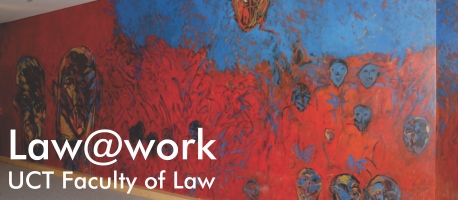
This course provides a focused training on key issues of social law and labour.
Join us for a twelve-hour course, presented over two days.
When and where?
This course is not currently scheduled.
Check out our Course Overview page to see all our current courses. Or join our mailing list to stay up to date with newly-scheduled courses.
Course outline
Day 1: Core Themes in Social and Labour Law
- Introduction to Social Law and Labour
Case Law: Matare v Minister of Labour and Social Security (Zambia, 2015)
- Welfare State Models and International Influences
Case Law: Kaunda and Others v President of the Republic of South Africa (2004)
- Labour Market Regulations and Economic Shifts
Case Law: National Union of Metalworkers of South Africa v Bader Bop (2003)
Day 2: Challenges and Future of Social Law
- Economic Crises and Labour Rights
Case Law: Mwalimu Simfukwe v Zambia Revenue Authority (2020)
- Social Law and Public Health
Case Law: Minister of Health v Treatment Action Campaign (2002)
- Legal Reforms and Future of Labour Rights
Case Law: Attorney General v Phiri (Zambia, 2018)
Who will benefit from this course?
Human rights activists, paralegals, trade union leaders, NGOs
Presenters
Clement Kasonde: Executive Director and Founder of Midlands Labour Academy Zambia Limited; Law Lecturer and HoD - School of Business Studies (Mulungushi University, Kabwe, Zambia)
Kayula Kasonde: Part-time lecturer at Midlands Labour Academy, and Senior Commercial Officer at Chambeshi Water Supply and Sanitation Company Limited.
Josephine Mwenda: Lecturer in the department of Law, Labour and Human Resource Management at Mulungushi University, Zambia
How much?
R5,760 per person
Certificate
A digital certificate of attendance from UCT will be issued to those who attend the full course.
Please note that the digital certificate can only be viewed on a secure portal. It cannot be downloaded or printed. You will have the option of ordering a hard copy of the certificate at your own cost, including the cost of the courier fee. More information is available here.
No certificate will be issued without the full course fee having been received. Please allow up to three weeks after the end of the course for certificates to be processed.
How to sign up
Complete and submit the registration form. You will then be given the payment information. Please note that your registration is not complete until payment has been made.
Registrations close three days before the course starts.
Download the brochure.
You may also be interested in:

